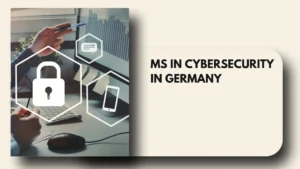- Ireland’s MSc Finance blends rigorous academics with hands-on exposure through modules in corporate finance, markets, and analytics for global banking careers.
- Strong industry ties give graduates direct entry into Dublin’s IFSC and Cork’s growing asset management sector.
- Applying early boosts chances, as most top admits and scholarships are offered in the first Oct–Jan cycle.
- Why Study MSc Finance in Ireland?
- Curriculum Highlights
- Top Universities & Tuition Fees for MSc Finance in Ireland (Non-EU Students)
- Eligibility Criteria for Indian Applicants
- Applications Timeline Overview
- Living Costs & Total Budget Estimate
- Postgraduate Careers & Salaries
- Top Recruiters in Ireland After MSc in Finance
- Key Takeaways from AdmitX
- FAQs

Why Study MSc Finance in Ireland?
Ireland is a highly attractive destination for MSc Finance due to its strong academic standards, industry connections, and global recognition. The following points summarize key reasons to study MSc Finance in Ireland:
- High Academic Quality and Global Recognition
Ireland’s top universities, especially Trinity College Dublin (ranked 75th) and University College Dublin (ranked 118th) in the QS World University Rankings 2026, have demonstrated strong global standing. Trinity College Dublin is Ireland’s highest-ranked university, and UCD is among the global top 120. This international recognition adds significant value to your MSc Finance degree in Europe and worldwide. - Accredited Education Framework
The country’s education system is regulated under the National Framework of Qualifications (NFQ), to build uniform standards and international recognition for degrees. This means students receive education that is rigorous and corresponds with global industry requirements. - Strong Industry Collaboration and Practical Learning
Irish MSc Finance programs have close links with the financial industry, including banks, investment firms, and fintech companies. Programs often include real-world projects, internships, and guest lectures, providing students practical experience and networking opportunities crucial for career advancement. - Strategic Location and Access to Europe
Ireland’s membership in the European Union offers excellent access to the European job market and cultural exposure. Its proximity to London, one of the world’s largest financial centers, further enhances internship and employment prospects for graduates. - Post-Study Work Opportunities and Support for International Students
International graduates in Ireland enjoy favorable stay-back policies, typically allowing them to work for up to two years after graduation. The country also has a supportive environment for Indian students, with diverse communities and comparatively affordable living costs than some other European destinations.
One-Year Intensive Programs
Most MSc Finance programs in Ireland are designed to be completed within one year. This allows students to gain advanced knowledge quickly and enter the job market faster compared to longer programs in other countries.
Curriculum Highlights
Irish MSc Finance programs generally follow a 90 ECTS credit system, blending core academic modules, elective specializations, and a capstone research or work-based project. They are typically structured as follows:
Core Modules (60 ECTS)
The first two trimesters usually focus on mandatory modules that build strong technical and analytical foundations. Typical subjects include:
- Corporate Finance and Valuation
- Capital Markets and Investment Analysis
- Financial Derivatives and Risk Management
- Quantitative Methods and Financial Econometrics
- Financial Statement Analysis and Reporting Standards
Elective Modules and Specialization Pathways
In the later stage of the program, students choose electives to tailor their MSc Finance degree towards career interests. Popular pathways include:
- FinTech and Digital Finance
- Sustainable and ESG Finance
- Asset and Portfolio Management
- Private Equity and Venture Capital
- Treasury and Corporate Risk Management
Electives often integrate case studies, trading simulations, and applied finance labs to provide hands-on exposure to current market practices.
Capstone Project or Internship (30 ECTS)
Most MSc Finance programs in Ireland conclude with a credit-bearing practical component such as:
- Master’s Dissertation: Independent research on a specialist finance topic.
- Industry Internship: 10–12 week placement in a financial institution, assessed for academic credit.
- Applied Consultancy/Finance Project: A team-based project solving real-world business challenges.
Top Universities & Tuition Fees for MSc Finance in Ireland (Non-EU Students)
Ireland is home to some of Europe’s most prestigious universities offering finance programs. Tuition fees vary by university and are updated annually. You can also read: Top 10 Affordable Universities in Ireland for Indian Students for a detailed overview.
Below is a table listing the best universities in Ireland for a Master’s in finance.
| University | QS World Ranking 2026 | Program | Annual Non-EU Tuition Fee |
|---|---|---|---|
| Trinity College Dublin | 75 | MSc Finance | €26,500 |
| University College Dublin (Smurfit) | 118 | MSc Finance | €28,140 |
| University College Cork | 246 | MSc Corporate Finance | €19,700 + €207 capitation = €19,907 total |
| University of Limerick | 401 | MSc Finance/Financial Services | €18,700+ (tentative) |
| Dublin City University | 410 | MSc Finance | €19,500 |
| Maynooth University | 771-780 | MSc Finance | €18,000 |
| Technological University Dublin | 781-790 | MSc Finance | €13,500 |
Eligibility Criteria for Indian Applicants
Admission to MSc Finance in Ireland requires academic strength and English language proficiency. Universities evaluate both academic performance and professional potential.
- Bachelor’s degree: In finance, business, economics, mathematics, engineering, IT, or another quantitative field.
- Minimum GPA: Roughly 2.2/4.0 on the US scale is accepted almost everywhere; top programs may look for 2.1/4.0 or higher. In Indian terms, this translates approximately to minimum 6.0–6.5 CGPA (out of 10), or a “second class honours” degree.
- English language proficiency:
- IELTS: 6.5 overall, with no band less than 6.0
- TOEFL iBT: 90–100
- PTE: 63–65
- Duolingo: Most programs that accept it require a minimum score of 105
- IELTS: 6.5 overall, with no band less than 6.0
- Recognition of Prior Learning: If your GPA is below the minimum, substantial relevant work experience (generally 3–5years) can sometimes be considered.
Applications Timeline Overview
Understanding the timeline is critical to securing admission and your visa on time. Ireland follows two major intakes, and planning early helps you meet deadlines and avoid last-minute stress.
Refer to the table below for timeline of the intakes:
| Task | Autumn Intake (Sept) | Spring Intake (Jan/Feb) |
|---|---|---|
| Research & shortlist universities | Jan – Apr (year before) | Jun – Aug (year before) |
| Document preparation (IELTS/TOEFL, SOP, LORs, transcripts) | Mar – May | Aug – Sep |
| Application opens | Oct (prev year) – Jan/Feb | Jun – Aug |
| Application deadline | Mar – June (some extends to July) | Sep – Nov |
Receive offer letter, pay deposit, and apply for Irish Student Visa (Type D) at least 4 months in advance.
Living Costs & Total Budget Estimate
Studying in Ireland involves planning for both tuition and day-to-day living. You can use our Cost of Living Calculator to accurately know your figures for better financial planning. The following estimates help Indian students budget realistically.
- Living Expenses: Typically €8,000 –15,000 per year depending on location and lifestyle, with Dublin on the higher end due to rent and transport costs.
- Tuition Fees: For a full-time MSc Finance program, annual tuition for non-EU students usually ranges between €18,000 – 28,000 depending on the institution and program structure.
- Visa & Health Insurance: Approximately €500 –1,000 in total, including the Irish Student Visa (Type D) fee, private health insurance, and administrative charges.
A realistic annual budget typically falls between €26,000 – 40,000 depending on the city and university.
Postgraduate Careers & Salaries
Ireland’s finance sector is home to multinational banks, investment firms, and Big 4 consultancies. Job opportunities in Ireland after Master’s in finance are bright and growing. Graduates of this program gain access to roles in asset management, risk analysis, corporate banking, and fintech.
Below are the average starting salaries for popular roles, based on Graduate Outcomes Reports (HEA) and Irish salary surveys.
| Job Role | Average Salary (€ per year) |
|---|---|
| Investment Banker | €55,000–80,000 (₹50.6 L – ₹73.6 L) |
| Financial Manager | €45,000–55,000 (₹41.4 L – ₹50.6 L) |
| Financial Controller | €42,000–50,000 (₹38.6 L – ₹46 L) |
| Financial Analyst | €30,000–40,000 (₹27.6 L – ₹36.8 L) |
| Financial Advisor | €28,000–38,000 (₹25.8 L – ₹35 L) |
Note on Critical Skills Permit: From January 2025, Ireland’s Critical Skills Employment Permit (CSEP) requires a minimum salary of €44,000 for most graduate finance roles to qualify for the permit. This visa allows you to work and settle long-term in Ireland and is one of the main goals for international graduates.
Top Recruiters in Ireland After MSc in Finance
Ireland hosts many global finance giants, making it a strong destination for MSc Finance graduates. Recruitment often happens via campus placements and graduate programs in Dublin, Cork, and Limerick, where most finance firms are headquartered.
Popular employers hiring MSc Finance graduates include:
- Barclays
- Deloitte
- KPMG
- PwC
- BlackRock
- EY
- JP Morgan
- Morgan Stanley
- Deutsche Bank
Key Takeaways from AdmitX
Ireland combines academic excellence, industry connections, and a gateway to EU careers. With verified tuition ranges and living cost estimates, Indian students can plan their journey with clarity and confidence. With tight admission cycles and visa requirements, strategy is everything.
- Prioritize Quantitative Background: Even if you come from commerce or economics, strengthen your profile with certifications like CFA Level 1 or Financial Modelling & Valuation Analyst (FMVA). Irish MSc Finance programs value quant skills highly.
- Shortlist by Industry Linkages, Not Just Ranking: For example, UCD Smurfit’s MSc Finance has direct pipelines into investment banking, while UCC’s Corporate Finance program aligns with Cork’s growing asset management hub.
- Prepare a Finance-Focused SOP: Go beyond generic motivation. Link your profile to Ireland’s financial ecosystem (IFSC Dublin, multinational banks, EU market access). This shows genuine fit and boosts admit chances.
At AdmitX, we help you with end-to-end guidance: shortlisting top universities, SOP/LOR drafting & templates, IELTS prep, documentation samples, pre-departure planning, Visa applications and accommodation in Ireland.
Ready to start your Ireland MSc Finance journey?
Book a free 1:1 counseling session with AdmitX or avail our free resources to get started!
FAQs
What is the duration of MSc Finance in Ireland?
Most programs are 1 year full-time, with a few offering 2-year options including research or internships.
Is Ireland good for a Master’s in Finance for Indian students?
Yes. Ireland offers globally ranked finance programs, industry links, and access to European banking and fintech hubs.
What is the tuition fee for MSc Finance in Ireland?
Tuition fees range from €13,500 to €28,140/year for Non-EU students, depending on the university.
What is the cost of living in Ireland for Indian students?
Annual living costs range between €8,000–15,000 based on location and lifestyle, with Dublin on the higher side.
What are the eligibility criteria for Indian applicants?
A Bachelor’s degree in finance, business, economics, mathematics, engineering, IT, or another quantitative field is required, with a minimum of ~2.2/4.0 GPA (≈6.0–6.5 CGPA in India). English proficiency is mandatory: IELTS 6.5 overall (no band below 6.0), TOEFL iBT 90–100, PTE 63–65, or Duolingo 105+.
When should I apply for a Master's in Finance in Ireland?
For Autumn intake, start applications in Oct–Jan; for Spring intake, apply between Jun–Aug of the previous year.
Which are the top universities for a Master's in Finance in Ireland?
Trinity College Dublin, UCD Smurfit, UCC, University of Limerick, DCU, and Maynooth are among the top.
What is Ireland’s Critical Skills Employment Permit?
It’s a visa pathway requiring a minimum €44,000 salary that allows MSc Finance graduates to work long-term in Ireland.
What are starting salaries after MSc Finance in Ireland?
Average salaries range from €30,000–40,000 for analysts to €55,000–80,000 for investment banking roles.
Who are the top recruiters hiring MSc Finance graduates in Ireland?
Barclays, Deloitte, KPMG, PwC, BlackRock, EY, JP Morgan, and Morgan Stanley hire graduates regularly.
If you are an aspirant looking to study at your dream university, book an appointment with AdmitX today and start your applications early to avail yourself of all the benefits.
















